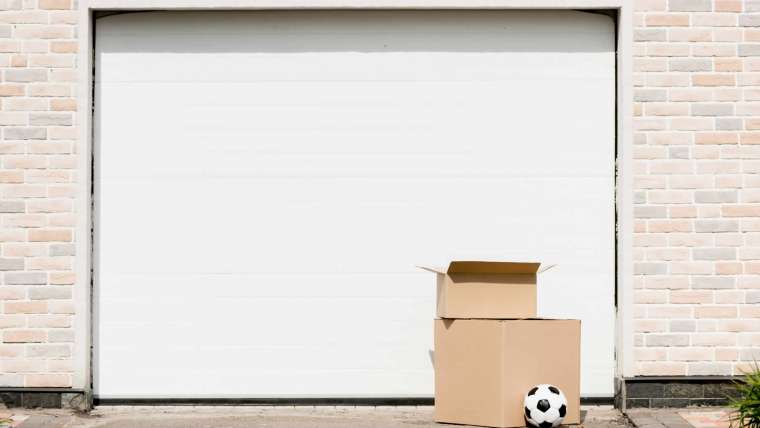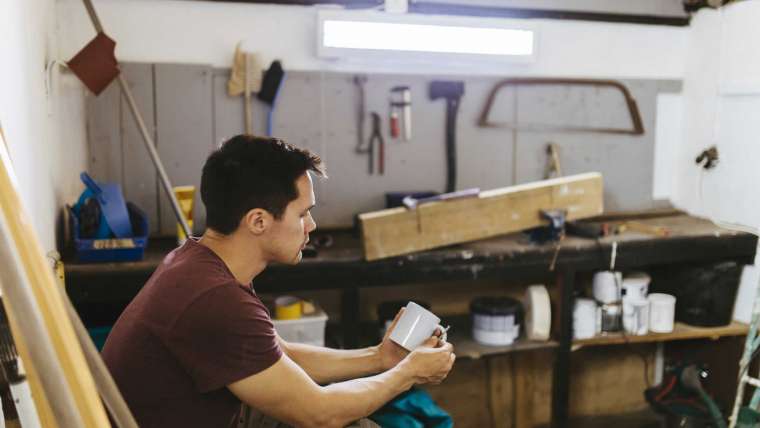Photo by pro_creator On Envato Elements
Wondering what you shouldn’t keep in the garage? Some of the items included may surprise you. Learn more about what can stay there and what should be stored elsewhere.
Skis. Bikes. Sports balls of all kinds. A lawnmower. Old toys. The garage can easily be converted into a storage unit where everything is kept. For most items that’s fine, but there are certain things that just shouldn’t be left in the garage and can even become a risk to the home if not properly protected for storage. Read on for tips on how to organize your garage.
What you shouldn’t keep in your garage
- Additional fuel: Storing portable gasoline containers and propane tanks in the garage can be dangerous: Highly flammable fuels pose a risk of leakage. If you store any fuel in the garage, do so only in designated, leak-proof containers, placing it out of the reach of children, out of the reach of pets, and away from potential sources of fire ignition, such as hot water heaters. or power tools. A shed away from your home is a better storage place.
- Paint or home improvement chemicals: Some liquids like latex freeze at the same temperature as the water. Others may need a temperature-controlled environment. Check the manufacturer’s instructions to guide you.
- Furniture: Unless your garage is temperature controlled, its interior will be subject to extreme changes in heat and humidity. This can in turn warp the wood, allowing pests such as rodents to nest in (and ruin) upholstery, fabric, or mattresses.
If the garage is your only option for furniture storage, find a clean, dry, elevated spot. Then, thoroughly clean and disassemble the furniture before wrapping or covering it. - Clothes: For hot or cold clothes that you should not wear this season, it is best to put them in a sealed container and put them in the attic, in the back of a closet, or store them in the basement. In the garage, clothes could absorb smoke and collect dust, putting them at risk of damage from insects or pests.
- Food: This refers to all kinds of food, from bird food to pet food to human food. Perishable items present a great temptation for rodents and vermin, and canned foods can spoil more quickly from being exposed to extreme temperatures.
Also, think twice before putting an extra refrigerator in a garage without heating and air conditioning, as the appliance may have difficulty operating efficiently when temperatures fluctuate. - Any Fragile or Valuable Item: Photos, artwork, and electronic devices are just a few of the items that require temperature control to prevent damage to their expensive or delicate components.
Remember, if you can’t bear to lose something or see it destroyed, then you probably shouldn’t leave it in the garage.




